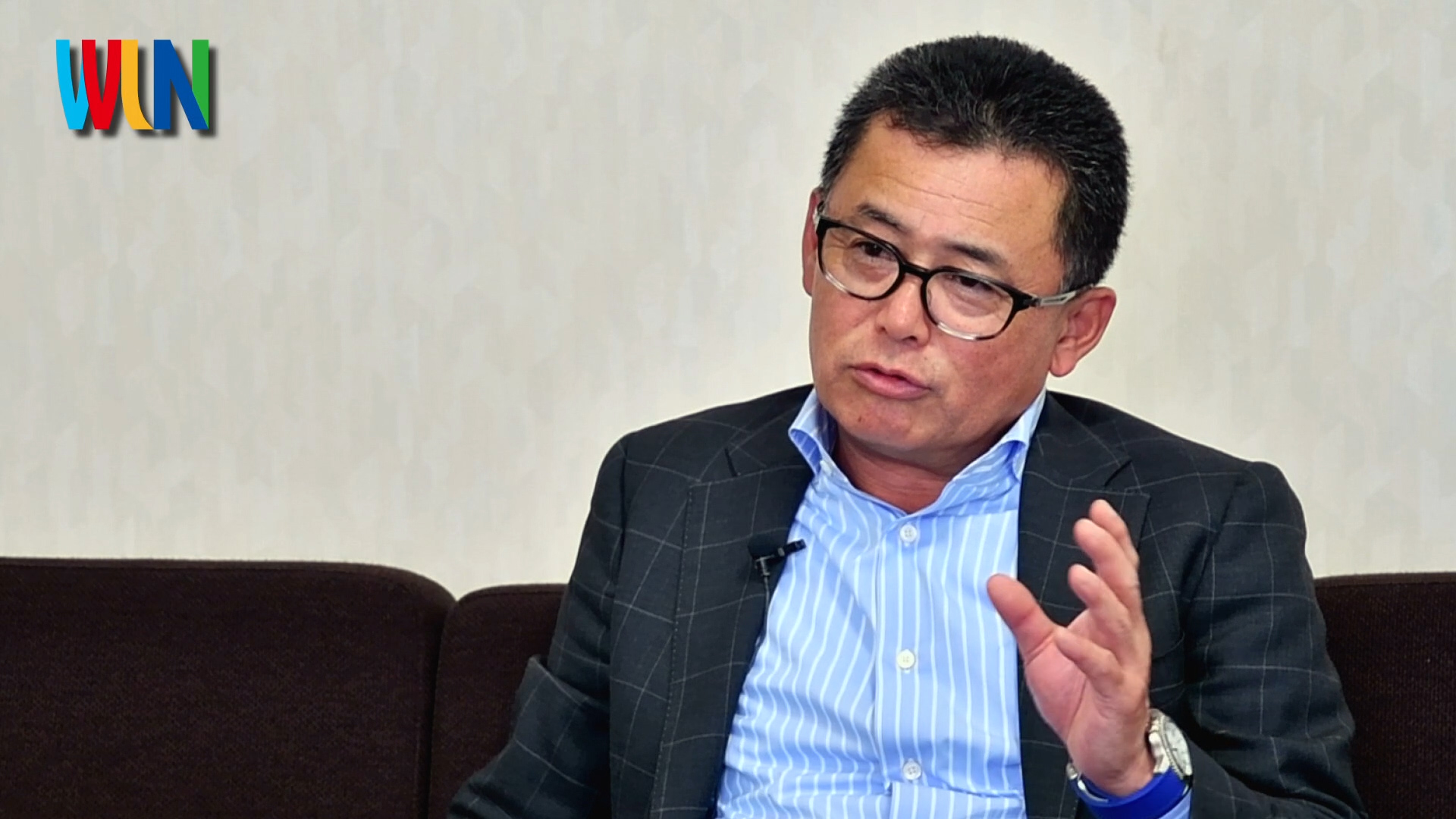Unexpected Common Ground between New Zealand and Okinawa
2018年12月12日
MAKOTO KINJO

Tell us about your career history
I was born in Tokyo, in 1959. My parents are both from Okinawa, but my father graduated from the University of Tokyo and worked in the city. Due to his work, we moved often: the United States, the northeastern Tohoku region of Japan, and back to Tokyo. We returned to Okinawa when I was in the first grade of elementary school.
In my first year of junior high school, I asked my parents to let me attend a school in mainland Japan. Anywhere was fine for me, but after I did some research I found a school with a full boarding system in Yokohama that put a lot of effort into international exchange programs. Luckily, my parents allowed me to attend.
The school was an integrated school system of junior and senior high schools. We had an option to choose from America, Canada, Australia, or New Zealand for a study abroad program. I wasn’t sure where to go so I asked my father; he advised me to go to New Zealand, so I chose that. That was in my first year of high school. I was fortunate to have a wonderful host family which made me like New Zealand very much.
After I graduated high school, I flew back to New Zealand again to study at the University of Canterbury. I studied business management there, and then got a job at one of New Zealand’s food companies. I was appointed to marketing manager for the Asia region and conducted sales marketing in Southeast Asia and Japan. In 2000, I decided to transition to my current company, ANZCO Foods LTD.
My current company is a meat exporter based in New Zealand. ANZCO Foods believed that I could contribute a lot from my previous experience, so I was selected to become the president in 2003 and has been nearly 15 years since then.
Do you have any business connections with Okinawa?
We didn’t have much business with Okinawa, but through a mutual acquaintance I was able to meet the president of SAN-A, an Okinawan grocery chain. They were considering the import of chilled beef from New Zealand to deliver the best quality beef to their customers, but no company in New Zealand could do that at the time.
It is more obvious when you actually try chilled meat, but once frozen meat is defrosted, it tends to become dry due to escaped moisture. On the other hand, importing meat in a chilled state allows it to undergo an aging process, and by the time it reaches the customers it has become tender at the right time and tastes even better.
Technologically speaking, it is more difficult to import chilled meat compared to frozen, and quality control is much more demanding. It cannot be achieved if the cold chain is not established firmly from the factory side up to the sales point. However our company had experience in exporting chilled beef to mainland Japan, so we used that to our advantage and made a business deal with SAN-A nearly 14 years ago.
Are there any similarities or differences between Okinawa and New Zealand?
I have never really thought about it but looking back, island countries are surrounded by many different cultures, and many people work with the outside world in mind. I think New Zealand is also the same in that perspective.
New Zealand is about the size of Japan excluding Hokkaido, with a population of only 4.2 million people. It’s only three or four times bigger than Okinawa, and they too have a small domestic economy so they have to work towards a global market. In that sense, their ways of thinking and behavior are very similar to us. They have a history of trading with neighboring countries in order to become prosperous. From that point of view, I feel that Okinawans are very friendly people to New Zealanders and it seems like we have many things in common.
About the Okinawa New Zealand Society
The Ambassador of New Zealand in Tokyo was very interested in Okinawa, and I had an opportunity to guide him around. When I was showing him around Okinawa, he told me that Okinawa was one of the only places in Japan that didn’t have a Japan New Zealand Society. I promised him that since I am from Okinawa, I will make one for Okinawa.
The New Zealand national karate team is considering Okinawa as their host area for the Olympics because the climate is considered the best for preparation and training for athletes coming from the Southern Hemisphere.
This is a perfect chance for people to learn more about New Zealand, and vice versa; I hope the people of New Zealand can learn more about Okinawa too.
A word to Uchinanchu who are spreading their wings to the world
First of all, I believe that Uchinanchus have the spirit of exploration in their DNA; there is no need to be afraid, just take on whatever challenges that come to you. Secondly, when I attended the school in Yokohama, the chairman used to tell me many times, “be a person who moves the land, even if by one centimeter.” I believe having that in mind will make you want to change something, create what other people could never imagine.






